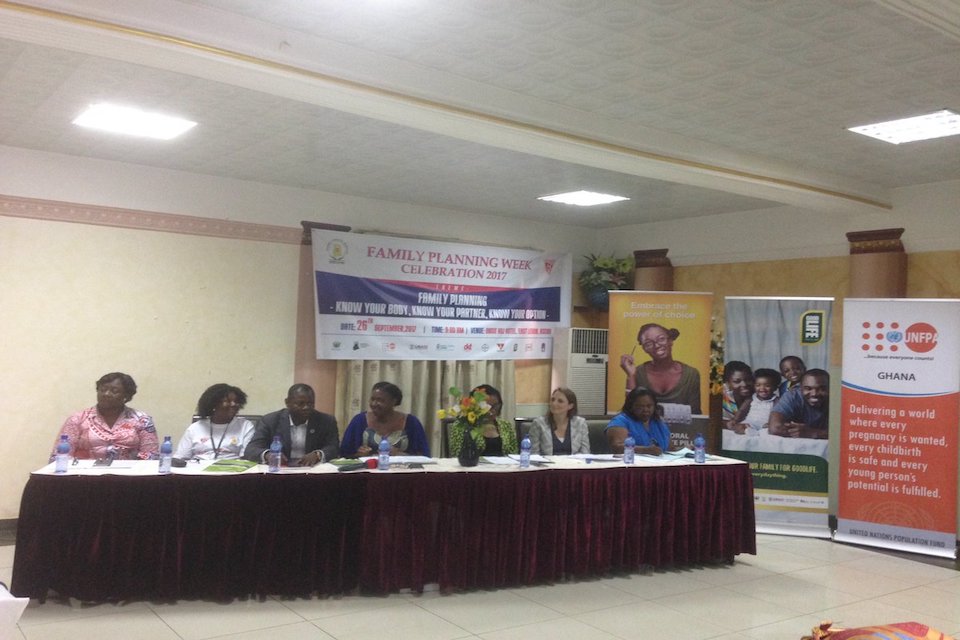DFID Ghana Health Adviser's speech at the launch of Family Planning week in Accra
Health Adviser of Department for International Development Ghana delivered a speech at the launch of Family Planning week in Accra.

It’s great to be here at the launch of Family Planning week – thanks for invitation to speak.
I would like to start by saying a few words about the UK’s commitment to supporting voluntary family planning across the world. Providing women and girls access to contraception is transformational – it enables women and girls to make decisions about their health and their future, to complete their education, create or seize better economic opportunities and fulfil their potential. Investing in the health and wellbeing of women and girls makes countries stronger, more stable and more successful. That’s why it’s a top priority for the UK’s Department for International Dev - DFID.
It was great that Ghana was represented at the London FP Summit in July, hosted by the DFID, with UNFPA and the Gates Foundation, by the Deputy Minister, Honourable Tina Mensah, and the Second Lady Samira Bawumia, who has been a great champion for the health of young people.
And it was great to hear such transformational commitments from Ghana – to increase the number of women using modern contraception from 1.4 million to 1.9 million in 2020 – that’s 500,000 extra women and girls each year who will access services that can change their lives. Ghana is also looking to ahead to greater self-financing of family planning commodities, which to date have been primarily supported by donors. DFID believes that Ghana is ready to take on more of the financing needs of its health sector, including for FP commodities, although we will continue to support Ghana to meet its FP 2020 commitments in other ways.
One of the themes at this year’s Summit was adolescents. Adolescence is a formative period - a crucial opportunity to set young people on a path to a healthy future. When countries prioritise youth-friendly reproductive health services, young people are far more likely to reach their full potential. Over the past 3 years, DFID has been working with GHS to increase access to information and services for young people, through the Ghana Adolescent Reproductive Health programme in Brong Ahafo and Ashanti, with Palladium, Ghana Health Services, the National Population Council, Planned Parenthood Association of Ghana, Hope for Future Generation, and district assemblies.
The programme has reached 190,000 adolescents, developed 54 new youth corners which have created a safe and supportive environment. 2.2 million viewers were reached by the TV show ‘You Only Live Once’ - YOLO. We’ve worked with GHS to develop innovative technologies – mobile app for adolescents and service providers, a new Resource Book for teachers, and a revised Adolescent Health Policy and Strategy that will pave the way for the future.
The programme has seen doubling in contraceptive use in BAR and there has been a decline in the percent of adolescent girls who become pregnant each year. I’m confident that the regional health teams will carry on this important work.
Over the next few years, Ghana’s success in Family Planning will be measured by how we have reached adolescents and other vulnerable people - this will be a deciding factor in the future prosperity for the country. We all have a responsibility to ensure that all adolescents have the tools and information they need to protect their health and plan their futures.
Thank you.